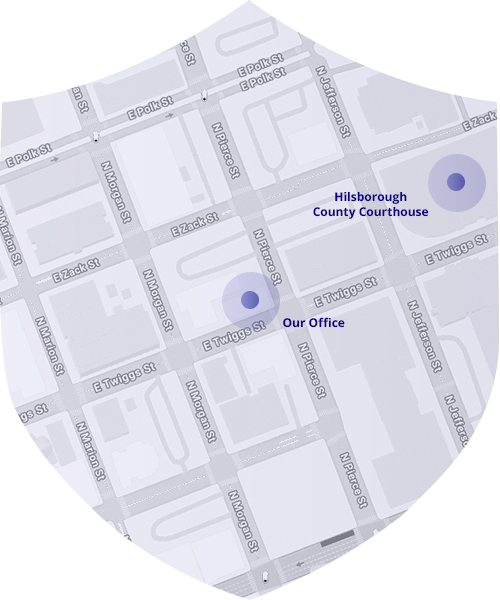- Free Consultation 24/7: (813) 727-7159 Tap Here To Call Us
Prison Releasee Reoffender Attorney

What Is a Prison Releasee Reoffender?
In Florida, a Prison Releasee Reoffender (PRR) is a person who commits or attempts to commit certain serious crimes within three years of being released from prison. PRR status can also apply if the new offense occurs while the person is serving a sentence or has escaped from custody.
Under Florida law, this classification carries extremely harsh mandatory sentences that must be served in full. You need an experienced Tampa Violent Crimes Defense Attorney to protect your rights.
What Crimes Qualify for PRR Sentencing?
PRR sentencing applies to many of Florida’s most serious felonies, including:
- Murder or manslaughter
- Sexual battery
- Robbery, home invasion, or carjacking
- Arson
- Kidnapping
- Aggravated assault or aggravated battery
- Aggravated stalking
- Armed burglary or burglary of a dwelling
- Lewd or lascivious molestation (§ 800.04)
- Aggravated child abuse (§ 827.03)
- Use of a destructive device
- Any offense involving physical force or violence
What Are the Mandatory PRR Sentences?
If PRR sentencing is applied, the judge must impose the following mandatory minimums. The defendant must serve 100% of the sentence with no gain time, parole, or early release:
- Life felony: Life imprisonment
- First-degree felony: 30 years
- Second-degree felony: 15 years
- Third-degree felony: 5 years
The court has no discretion to reduce the sentence once PRR is proven.
Who Decides Whether PRR Applies?
PRR is not automatic. The State Attorney decides whether to pursue it. Once the prosecutor elects to file a PRR notice and proves eligibility, the court must impose the statutory sentence.
This makes the prosecutor’s decision extremely powerful. PRR is often used as leverage in plea negotiations, pressuring defendants to accept lengthy pleas rather than risk a trial with mandatory sentencing.
Can PRR Be Avoided?
The only way to avoid PRR is if the State Attorney declines to pursue it. Florida law allows prosecutors to waive PRR when “extenuating circumstances” make strict prosecution unjust, including a victim’s request for leniency.
However, prosecutors must document their reasons in writing. This accountability measure often discourages flexibility, leading to inconsistent results across cases.
Why PRR Cases Require Skilled Legal Defense
When facing PRR exposure, the defense must act early and strategically. The stakes are absolute—there is no second chance once PRR is applied.
At The Brancato Law Firm, P.A., we focus on:
- Challenging the legal grounds for PRR classification
- Reviewing the timeline of prior incarceration and release
- Identifying flaws in the prosecution’s documentation
- Negotiating with the State Attorney to avoid PRR designation
- Filing motions to strike improper PRR notices
- Presenting mitigation evidence to persuade prosecutors to withdraw PRR
What to Do If You’re Facing PRR Sentencing
If you or a loved one is charged with a PRR-eligible offense, contact an experienced defense attorney immediately. Acting early can make the difference between a mandatory decades-long sentence and a fair resolution.
Attorney Rocky Brancato has over 25 years of experience defending serious felony cases throughout Tampa Bay. As the former senior managing attorney of an elite sex crimes and homicide unit, he understands how to dismantle PRR allegations and negotiate effectively with prosecutors.
Call (813) 727-7159 for a confidential consultation.
The Brancato Law Firm, P.A. represents clients in Hillsborough, Pinellas, and Pasco Counties.

















